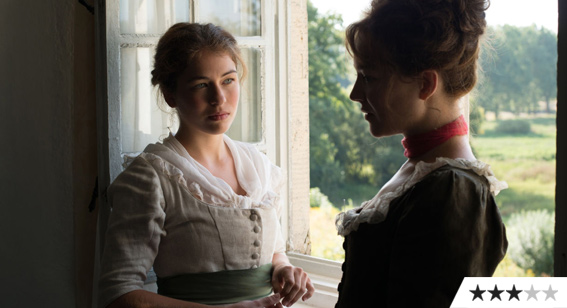Review: Beloved Sisters

To mount this 18th century love triangle between upper crust sisters Charlotte and Caroline von Lengefeld and penniless poet/philosopher Friedrich Schiller, writer/director Dominik Graf didn’t have too much to go on, given that his chief inspiration is the absence of a source: Charlotte’s correspondence with Schiller, which was all burned upon his death. Thus Beloved Sisters is more speculative period fiction than fact, albeit a marginally diverting one.
Intermittently enriched by a historical context than encompasses milestones both technological (the birth of letterpress printing) and political (the French Revolution), it’s essentially a forbidden romance-type tale, posing the classic classist conundrum of aristocracy marrying into lesser-wealth. It’s not electrifying cinema, but the impassioned ménage à trois and its toll on an oath-sealed sisterly bond are palpably portrayed by its leads, particularly Hannah Herzsprung, whose Charlotte emerges the most emotionally realised character out of the three.
The costuming and art direction, often bathed in natural, pastoral light, are pleasantly lush without being overbearingly ornate, and Graf can be commended for at least trying to avoid the constricted ‘tudes of costume drama; the camerawork exhibits a playful mobility, and the characters occasionally break the fourth wall, as if to match the transgression of the central relationship. At the same time, Beloved Sisters can’t completely escape a certain TV-ish chasteness, and one wonders if the longer three-hour cut would smoothen some choppy character development evident here. Those partial to Masterpiece Theatre, Merchant Ivory and the like might give it a star bump.

















